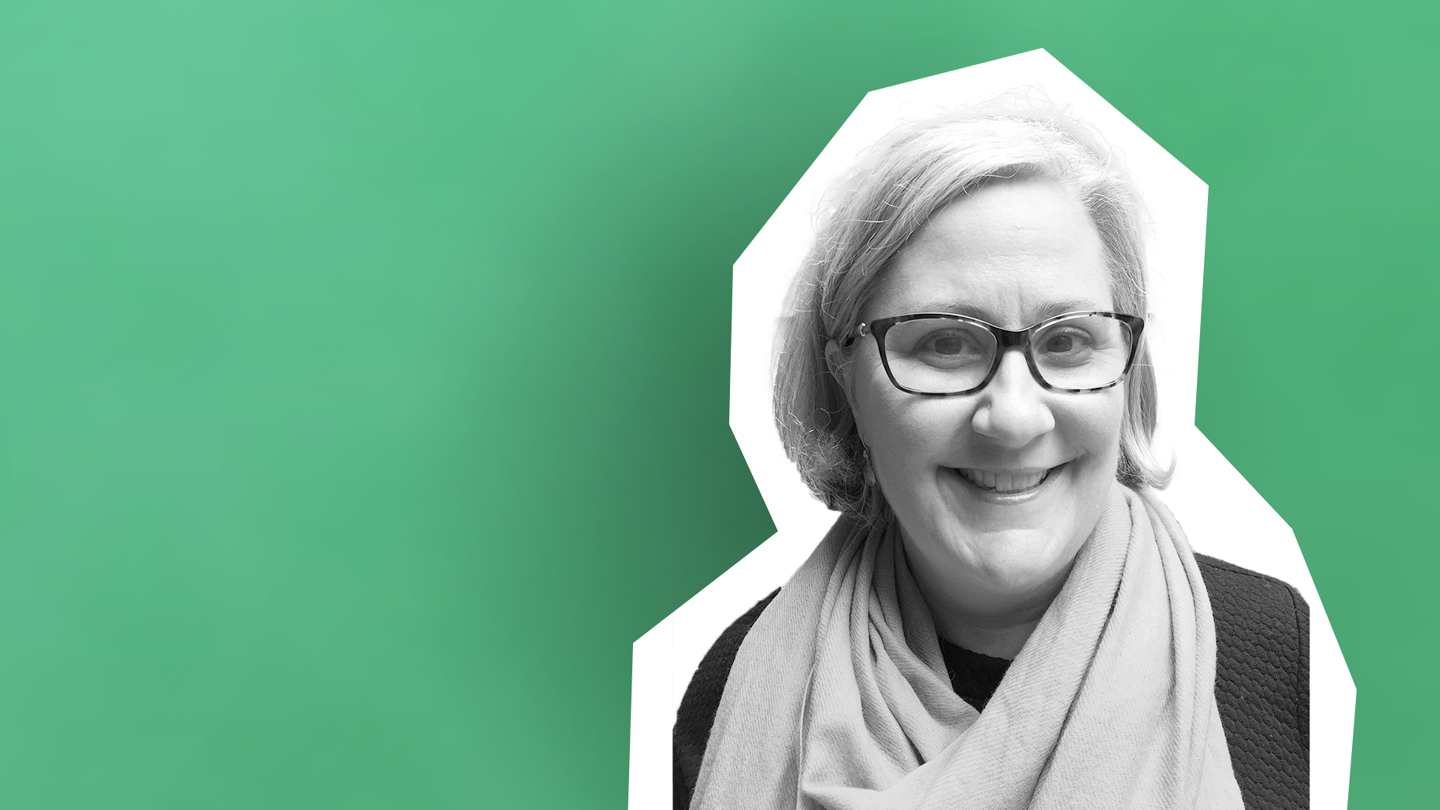Memsy Price has advice for any aspiring writers, editors and marketers: “If you don’t know what you’re doing, even after you begin your career, that’s perfectly OK!”
This was a lesson Memsy learned firsthand, as her career trajectory “looks more like a series of spirals than a straight line.”
‘I Want to Be Where the Great Stories Get Told’
While Memsy’s career path might not have been linear, a common theme runs through all of her choices. “I want to be at the place in an organization where great stories get told, whether they’re a first novel set in the American South or a primer on materiality assessments for ESG pros,” she says.
Her early career spirals included:
- Driving a U-Haul from North Carolina to New York City as a freshly minted liberal arts graduate to start a career in publishing.
- Receiving a thyroid tumor diagnosis in her 20s and abruptly deciding to move to her mother’s home country of Italy, despite having no job prospects or community there.
- Moving back to North Carolina, completely broke, and accepting a job as a marketer and, later, a contract position in curriculum development for a local film school.
- Launching a freelance career alongside her contract work to help pay the bills and connecting with tech clients, revealing a love for technology.
These days, Memsy is the senior director of content strategy at Workiva, a mission-driven tech company providing a reporting platform used by more than 85% of the Fortune 500.
Prior to Workiva, she spent eight years at SAS and five years at IBM, and it’s safe to say that her love for tech isn’t going anywhere.
How to Break Into Technical Fields as a Nontechnical Person
If you’re looking to snag a role at a highly technical organization or within the tech industry but you don’t have much experience, should you quit dreaming? Nope! Memsy’s story is a testament to the fact that it can be done.
Memsy recommends leaning on your content skills. “The ability to listen, describe and bring tech to life has never been more vital,” she explains, “especially in a crowded world in which we are all bombarded with thousands of interactions every day.”
The hope here is that if you’re able to show the strength of your writing and strategy skills, you can win the trust of a manager who will help you gain the more specific technical know-how on the job.
Even if you doubt the power of “soft” tech skills like writing and editing, storytelling is extremely critical to a tech company’s ability to stand out — and, from a long-term perspective, remain competitive.
That’s not to say that there aren’t times when being the sole creative on a team can feel like a tall order. But even in these moments, there’s a silver lining. While Memsy was at SAS, she was the only marketer on an internal editorial board tasked with selecting the papers for an annual user conference.
“Think highly technical, statistical work,” she says. “My presence was greeted with a lot of warranted dread that I’d try to insert marketing messages into conference sessions.”
Instead, Memsy opted for the opposite approach, listening closely to what the statistically minded board members said so she could get inside the heads of SAS users. This resulted in a rich slate of technical content that was vetted by the board (for instant credibility!) and had a long life after the conference in a series of technical marketing efforts — online communities, “Ask an Expert” webinars and a monthly technology newsletter.
“The newsletter had an open rate so high that it was near 50% at times! I was convinced the data was wrong. It wasn’t,” Memsy says.
Trust Your Curiosity and Try New Things
No matter what field you’re in, Memsy recommends trusting your curiosity. “It will always lead you to the story,” she emphasizes. “And don’t be afraid to try new things — different types of content, ways of creating derivative assets, new channels. And pay attention to what the data tells you.”
In her own life, Memsy pursued a master’s degree in fine arts focusing on nonfiction creative writing, eventually leaving SAS to complete it. Despite not having any experience with this writing, Memsy had always been called to this particular MFA program. After losing someone close to her, she decided life was too short to wait.
One of the benefits of learning in multiple ways is that you’ll discover transferable skills and competencies within your career. With her MFA in hand, Memsy can apply what she learned there to her job as a B2B content marketer.
“I learned so much from the MFA experience,” she says. “The unofficial motto of the program was ‘DMSU’ (Don’t Make Shit Up), and I think that’s more relevant in B2B content marketing than just about anywhere. For example, does anyone know what ‘extensible’ really means? Or ‘industry-leading’? The MFA taught me to dig for the facts that comprise a compelling narrative.”






